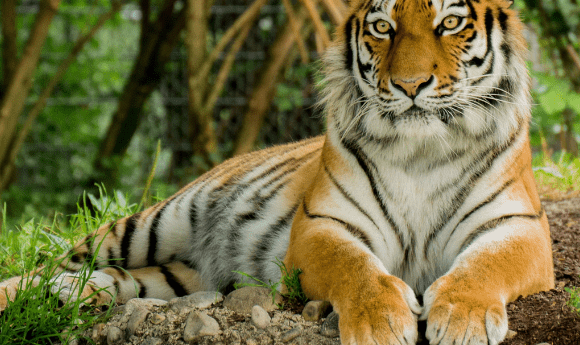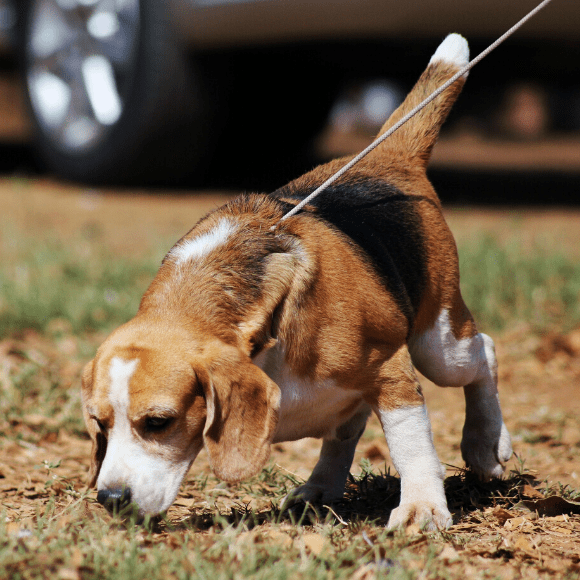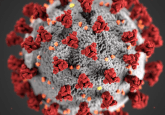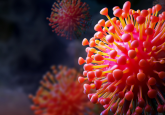From bats to big cats: how are animals affected by COVID-19?

The Bronx Zoo (NY, USA) confirms the first case of COVID-19 in a non-domesticated animal – a Malayan tiger called Nadia – highlighting a need for veterinary research during the pandemic.
Many coronaviruses are known to be zoonotic diseases, meaning that they spread from animals to humans. In the case of the current outbreak, COVID-19, the SARS-CoV-2 coronavirus has been linked to horseshoe bats and pangolins as disease hosts, though how the disease made the leap from animals to humans has yet to be identified.
As the virus has spread throughout the globe, reports of humans transmitting the virus to animals have been sparse, but not non-existent; two dogs in Hong Kong (China) have tested positive for COVID-19, as well as a domestic cat in Belgium.
If you would like to keep up to date with our content on coronavirus, you can sign up for our site here, where you can subscribe to our newsletters for free!
Given its history in animal hosts, many virologists have highlighted the need for research into the effect of SARS-CoV-2 in animals, with the prediction of future viral hosts a key priority for many. Should the virus take up home in a ‘reservoir host’ –an animal host that does not display symptoms – then it may be able to take refuge, restock and reinfect humans at a later date.
“As the virus is spreading around the world, it might find entirely new reservoir hosts [outside of] China,” virologist Ralph Baric (University of North Carolina, Chapel Hill, NC, USA) told National Geographic. “We don’t know. It is something every country needs to be thinking about as the epidemics wind down.”
By utilizing 3D computer modeling of SARS-CoV-2’s spike protein and the ACE2 protein receptor to which it binds, researchers have been able to identify a set of species that may be susceptible to the virus, including pangolins, cats, cows, sheep, pigeons and pigs. The species identified carry a form of the ACE2 receptor that the SARS-CoV-2 virus would be capable of utilizing, thereby making these animals potential hosts. However, the research is preliminary, needs validation in further studies and does not say whether these species would be symptomatic hosts or not.
 Man’s best friend to the rescue! Dogs could be taught to ‘sniff out’ coronavirus
Man’s best friend to the rescue! Dogs could be taught to ‘sniff out’ coronavirus
Researchers are investigating whether dogs could be trained to detect COVID-19, in a bid to halt the spread of the disease.
Cats are indeed known to be susceptible to certain types of coronavirus, with the feline coronavirus being a common viral infection in cats both domestic and wild. Studies such as the aforementioned preprint have suggested that cats are able to contract and transmit COVID-19, and a similar pattern of transmission among cats was seen with the previous, genetically similar SARS outbreak.
The diagnosis of Nadia, the Malayan tiger, marks the first case of an animal of any kind displaying symptoms of the virus. Having developed a dry cough in late March, the zookeepers tested Nadia for COVID-19 on April 2. Six other big cats in the zoo, including two Siberian tigers and three African lions, have also demonstrated respiratory symptoms though are yet to be tested. None of the zoos other big cats appear to be affected.
“It’s the first time, to our knowledge, that a [wild] animal has gotten sick from COVID-19 from a person,” commented Paul Calle, chief veterinarian at the zoo. It is believed that the disease was spread from an asymptomatic keeper, as the zoo itself has been closed to the public since March 16.
The zoo notes that the test used for Nadia differs from the much sought-after test for diagnosing COVID-19 in humans; “there is no competition for testing between these very different situations,” explained Calle.
The seven affected cats are under care of the zoo’s veterinarians and are expected to make a full recovery. Further updates are to be reported as they occur, and the diagnostic information is to be shared with the scientific community.
Reports suggest that the predominant route of transmission for SARS-CoV-2 is via human-to-human contact and there is no evidence to suggest that animals may propagate the spread of the disease. Studies in cats have focused on the spread from cat to cat, with no suggestion of a cat-to-human transmission. However, the World Organisation for Animal Health (Paris, France) has recommended that time spent with pets is limited if you are currently sick with COVID-19 or have any COVID-19-like symptoms. Basic hygiene measures should be implemented before handling animals or their food.





